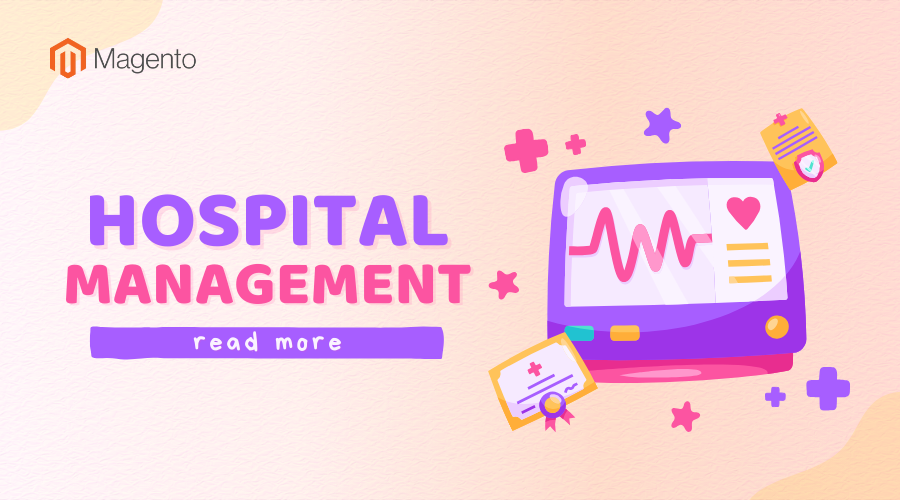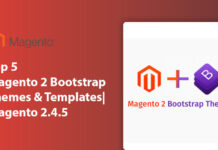
Every hospital’s top priority is providing patients with the best therapies and reassurance regarding their well-being. Therefore, this is only feasible when hospital operations align with patient needs.
One of the most important things hospitals can do to increase efficiency is to have the finest hospital management software. It may arrange appointments and notify hospital personnel of available beds, among other things.
Hospital management software needs have never been more important as the healthcare sector grows and expands. Selecting the appropriate software may significantly impact process optimization, enhance patient care, and boost financial gains.
Table of Contents
I. Hospital Management Software: What Is It?
When was the last time you attended a medical facility? How did you find the situation?
You most likely made an appointment by calling your name, informing the receptionist of your issue, and registering in advance, or you just made the reservation online via the website. Hospitals request personal information, such as name, phone number, address, insurance, etc., regardless of the workflow.
Why do they ask for all this information, and where are they keeping it? The hospital management system (HMS) is the response.
A hospital management system (HMS) is a program that gathers information on patients, physicians, employees, and hospital administration. Hospital Management System Development has several benefits, chief among them being the elimination of paper throughout the process.

II. Essential Elements in a Hospital Management System
Your system will be better optimized with the more beneficial features you include. The following are the key components:
2.1. Simplified Patient Record
This feature makes patient registration easier and facilitates effective management of health data. The automatic call processing functionality is an additional noteworthy aspect. Patients can make appointments whenever and wherever they want, which may improve patient care.
2.2. Laboratory Information System
This feature automatically updates patient data and uses communication channels to notify patients and clinic personnel. This aspect greatly impacts the effectiveness and speed of therapy.
2.3. System for Managing Inventory
One of the essential elements required for management is this. Using this tool, you can keep track of all medication, medical supplies, and inventory goods. You can also get replenishment alerts, be updated about your availability, and estimate delivery dates.
III. Hospital Management System Development Benefits
Statista projects that 2026 the market for “smart hospitals” will be worth $83.1 billion. A hospital management system is one of the cutting-edge healthcare technology solutions that have become more popular since the worldwide pandemic of 2020 brought attention to the sector’s status. Numerous advantages are provided by HMS software to healthcare organizations, patients, and medical institutions. Let’s concentrate on the biggest benefits of putting HMS into practice.
3.1. Increased Output and More Efficiency in Day-To-Day Activities
An HMS greatly lowers the chance of mistakes resulting from human error by automating tasks like updating patient histories and modifying prescription lists according to a patient’s condition.
This increase in productivity also decreases waiting times for operating rooms and medical equipment. For example, when a patient cancels an appointment, the appropriate doctor’s schedule is updated promptly in real-time to ensure seamless functioning.

3.2. Improved Departmental Communication
One aspect of hospital management software by Langate is the effective facilitation of seamless communication between hospital departments and wards.
It makes it possible to quickly and securely get important data in print and digital forms, including analytical findings, operating room scheduling, and pharmacy inventories. This encourages effective departmental coordination and guarantees the seamless operation of the healthcare system as a whole.
3.3. Enhanced Patient Satisfaction
The patient experience may be greatly improved with a dependable and easy-to-use HMS. Timely information about medication regimens and doctor visits is given to patients, which enhances their overall pleasure and confidence in hospital services. This, in turn, draws in more customers and improves the facility’s standing.
3.4. Streamlined Procedures for Invoicing and Payments
In addition to providing treatment, hospitals are businesses that manage various financial issues involving several parties.
A well-implemented HMS supports various payment methods for medical goods and services, making financial transactions easier for all parties and making the hospital’s operations more financially efficient.
3.5. Thorough Understanding of Employee Performance
An HMS provides an extra commercial benefit by monitoring hospital staff performance and giving the administration thorough information. These statistics allow hospital management to determine which services are more profitable and which departments may need to close or temporarily receive less cash. Additionally, they assist in spotting such problems early on and resolving them to protect the hospital’s assets and good name.

IV. How to Select the Best Software for Hospital Management
The choice of hospital management software (HMS) may significantly impact a hospital’s operations and patient care.
4.1. Needs Evaluation
To choose the best Hospital Management Software, a detailed requirements analysis must be carried out first. This entails assessing the particular needs of your medical facility and determining the essential features that the software needs to provide. Consult with a range of stakeholders, such as medical experts, nurses, administrative personnel, and IT specialists, to learn about their present problems and ideal features.
4.2. The Ability to Scale
Healthcare institutions are dynamic places with ever-changing requirements. Thus, selecting hospital management software that can expand with your institution’s expansion is essential. HMS scalability refers to the program’s capacity to accommodate an increase in users, patients, and transactions without sacrificing functionality. It also suggests that additional features or modules may be added as required.
4.3. User-Friendliness
Simple, easy-to-use menus and processes that complement the regular responsibilities of healthcare workers are essential components of a user-friendly HMS. It should reduce the learning curve and make it possible for employees to do their jobs well without requiring a lot of training. During the selection phase, usability testing with prospective users may assist in guaranteeing that your staff will adopt the HMS, resulting in more efficient operations and increased output.

4.4. Integration Skills
The hospital management software of choice must be able to interact with these current systems without issues to guarantee smooth data flow and operational continuity. Seek HMS programs that have strong APIs for bespoke integrations and use common interoperability protocols (such as FHIR or HL7).
4.5. Assistance and Instruction
Good customer service and thorough training are essential for an HMS deployment to be successful. The software vendor should provide comprehensive training sessions to ensure that your personnel is fully aware of and able to exploit the system’s possibilities. This covers both the initial onboarding process and continuous training to prepare for upgrades or new features.
Conclusion
Effective hospital administration software facilitates interoperability, guarantees data security, and expedites administrative operations. In the end, making thoughtful software selections for hospitals boosts both operational effectiveness and patient care quality. For this reason, it is an investment that will pay off handsomely for both healthcare practitioners and the patients they treat.












![[SALE OFF] Discount 30% All Premium Extensions On Christmas And New Year 2025 christmas-and-new-year-2025](https://landofcoder.b-cdn.net/wp-content/uploads/2024/12/christmas-and-new-year-2025-1-218x150.png)






